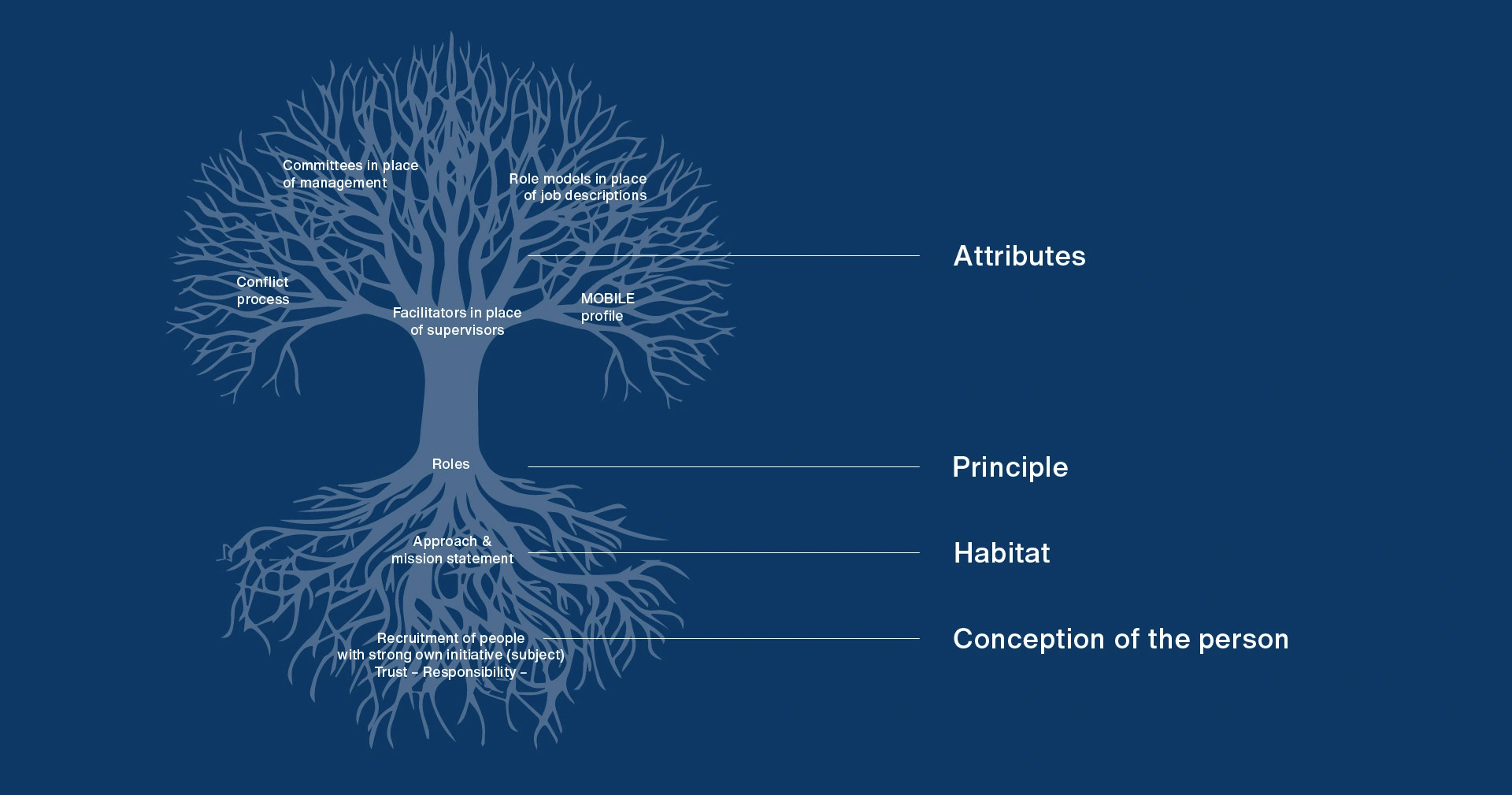
It would never occur to the brain to tell the liver how to filter toxins out of the body. It would never occur to the gut to ask the heart for permission to activate the large intestine. And none of these organs recognises the stress of another organ asking it to take on a role for which it is not designed.
Each of these organs makes a knowledge-based and final decision every second of our lives about what to do in its area. In the event of poisoning, for example, the heart will beat slowly and the brain will shut down as best it can while the liver detoxifies. During an escape, the blood goes to the muscles and the adrenalin blocks the synapses in the brain, as we are no longer allowed to think in terms of options at this time.
Sometimes individual organs receive impulses from other organs or sensors and then react to them. But the way in which they carry out their core activity is always determined by their own expertise.
Authority in the organic organisation
This describes the basic functional principle of an organic organisation: It replaces the principle of hierarchy with the principle of authority.
Firstly, we would like to clarify where the word hierarchy comes from.
"Hira" means "holy, ark leader". So together: Holy leaders.
Holy, in turn, means "worthy of veneration, divinely consecrated, inviolable, awe-inspiring". Hierarchy therefore means a structure that has a bottom and a top - and in which the top is untouchable, God-given.
This represents the greatest challenge in the transition to organic organisation. As soon as the "hierarchy" (i.e. the company owners or the management team) begins to relinquish not only decision-making power, but also the responsibility that goes with it, it becomes clear how many of the employees may have been annoyed by decisions, but still usually sleep soundly - because they somehow believe in the omnipotence of the "hierarchy".
Suddenly it becomes clear that even the owners of a company are "only" human, and not a "deus ex machina", a "god from the machine" - but at the end of the day, the entrepreneur must be successful if his company is to survive.
In the organic organisation, "bosses" become "enablers", but no longer have to be draught horses or pack mules.
The "burden" falls on each individual from the sub-entrepreneurial family - the burden of recognising colleagues for their work or resolving a conflict for a better whole.
The working atmosphere is no longer a matter for the employer - because the employer is really just a labour distributor who determines the infrastructure and values of the company.
The real employers for all of us are our customers.
The corporate culture thus becomes the sum of all behaviours in the organisation. In challenging situations, some people initially long for a "boss" who is in charge - and then realise what it means to be an authority.

In terms of systems, they are undisputed "authorities" in their respective fields of activity.

Suddenly it becomes clear that even the owners of a company are "only" people and not a "deus ex machina", a "god from the machine" - but at the end of the day, the entrepreneur must be successful if his company is to survive.
In the organic organisation, "bosses" become "enablers", but no longer have to be draught horses or pack mules.
The "burden" falls on each individual from the sub-entrepreneurial family - the burden of recognising colleagues for their work or resolving a conflict for a better whole.
The working atmosphere is no longer a matter for the employer - because the employer is really just a labour distributor who determines the infrastructure and values of the company.
The real employers for all of us are our customers.
The corporate culture thus becomes the sum of all behaviours in the organisation. In challenging situations, some people initially long for a "boss" who is in charge - and then realise what it means to be an authority.
Translated with DeepL.com (free version)
Authority is derived from auctoritas
The definition of the word "auctoritas" is described very well in Wikipedia, among other places:
In ancient Rome, "auctoritas" denoted a person's general standing in Roman society and thus their power, influence and ability to gain support for their will. The "auctoritas" symbolised the mysterious "power of command" of heroic Roman personalities.
Wictonary also gives meanings such as: Endurance, co-operation, asserted intention of will, empowerment, prestige, promoting influence, advice. This means that whoever is an authority has the authority to make decisions for the collective in the area.

The word "authority" comes from the Latin "auctoritas".